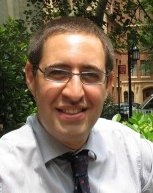The UNCTAD Virtual Institute kicked off its on-line course on trade and poverty yesterday, the first phase of a broader research capacity building project funded by the UN Department of Economic and Social Affairs and the Government of Finland. The course will conclude on 30 November this year.
Nearly 380 academics from 76 countries applied for the course, designed in collaboration with UNCTAD’s Division on International Trade in Goods and Services, and Commodities; the Division on Africa, Least Developed Countries and Special Programmes; and the Division on Globalization and Development Strategies.
The final selection includes 103 participants from 54 countries in Asia and the Pacific, Africa, Latin America and the Caribbean, and Eastern Europe. About one-third are women, and 28 come from 15 Least Developed Countries.
Developed specifically for researchers and university lecturers from developing and transition countries, the objective of the course is to provide participants with the empirical tools needed to assess the impact of trade and trade-related policies on poverty and income distribution.
 Dr. Nicolás Depetris Chauvin
|
Written by Professor Guido Porto of the National University of La Plata, Argentina;
Dr. Nicolás Depetris Chauvin, of the African Center for Economic Transformation, Ghana, and the University of Buenos Aires; and David Jaume, researcher at the National University of La Plata, the course takes a hands-on approach emphasizing data manipulation and the use of econometric tools.
The course is made up of six modules: Trade, Growth and Poverty; The Distributional Impact of Price Changes; Wage Income and Prices of Non-Traded Goods; Measuring Price Changes; Special Topics; and Ex-Post Analysis.
Each module contains theoretical and empirical readers accompanied by multimedia lectures presented by Depetris Chauvin, who holds a PhD. in Economics from Princeton University, and has taught at the Dubai School of Government.
At the end of the course, participants apply their new knowledge and skills to a practical exercise analyzing the effect of trade on poverty, with a special focus on gender.
In addition, a final essay will give the participants the opportunity to practice writing funding proposals for policy-relevant research projects on the relationship between trade and poverty in their countries.


